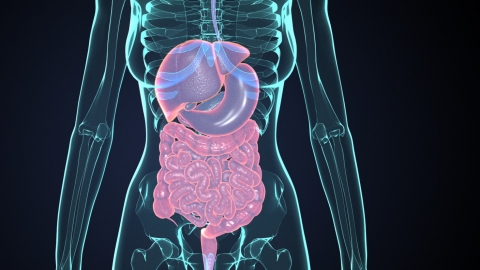How to treat liver cysts with traditional Chinese medicine?
Generally, liver cysts in traditional Chinese medicine may be related to factors such as spleen and stomach weakness, liver and kidney yin deficiency, blood stasis, damp-heat accumulation, and liver qi stagnation. Depending on the specific condition, drug therapy or other treatments may be used to manage or alleviate symptoms. It is recommended to seek timely medical advice to determine the underlying cause and receive appropriate treatment under a doctor's guidance. Detailed analysis is as follows:

1. Spleen and Stomach Weakness
Irregular diet and excessive alcohol consumption can lead to spleen and stomach weakness, impairing fluid metabolism and allowing dampness to accumulate, which may then affect the liver and gallbladder system, leading to cyst formation. This condition is often accompanied by symptoms such as poor appetite and indigestion. Patients may take medications such as Shenling Baizhu Powder (Shenling Baizhu San), Xiangsha Yangwei Pills, or Fuzi Lizhong Pills under a doctor's guidance.
2. Liver and Kidney Yin Deficiency
Aging, physical weakness, or excessive fatigue may lead to liver and kidney yin deficiency, impairing nourishment and repair of the liver and gallbladder system, thus promoting cyst formation. This is often accompanied by symptoms such as soreness and weakness of the lower back and knees, dizziness, and tinnitus. Patients may take medications such as Zhibai Dihuang Pills, Dabuyin Pills, or Shengmai Drink under medical advice.
3. Qi and Blood Stagnation
Prolonged sitting and lack of exercise may lead to impaired circulation of qi and blood, resulting in blood stasis in the liver and the formation of cysts. This is often accompanied by flank pain, abdominal discomfort, and a dusky complexion. Patients may take medications such as Yuanhu Zhitong Pian, Hongjin Xiaojie Pian, or Xiaoyao Pills under a doctor's guidance.
4. Damp-Heat Accumulation
Unhealthy lifestyle habits such as improper diet and excessive consumption of greasy foods may lead to internal accumulation of damp-heat, which can accumulate in the liver and cause cyst formation. This is often accompanied by symptoms such as bitter taste in the mouth, jaundice, dark yellow urine, and abdominal distension. Patients may take medications such as Xiongdan Kaiming Pian, Gandan Shuangqing Granules, or Kutong Granules as directed by a physician.
5. Liver Qi Stagnation
Emotional stress and high pressure may lead to liver qi stagnation, impairing the liver's function of free coursing and potentially causing liver cysts. This is often accompanied by chest tightness, flank pain, and emotional depression. Patients may take medications such as Shugan San, Liganlong Granules, or Chaihu Shugan Pills as directed by a physician.
In addition, gentle massage or tuina therapy may be applied to the liver area to promote local blood circulation and metabolism, helping to relieve pressure and discomfort caused by the cyst.







